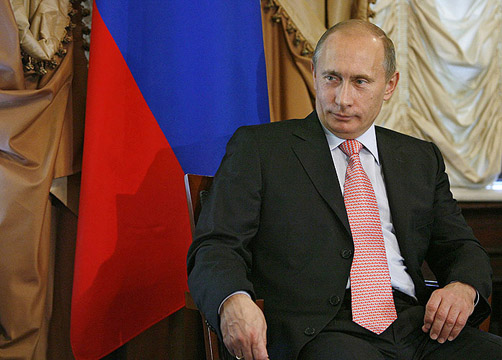The End of the Putin Consensus
March 2, 2012 -
Andrew Wilson
-
Bez kategorii

putin99.jpeg
** A new ECFR policy brief by New Eastern Europe contributors Andrew Wilson and Ben Judah provide recommendations on how EU foreign policy should be directed going forward. Highlights of the brief are here and the full report is linked below ***
The “Putin consensus” of the 2000s is over. Although Prime Minister Vladimir Putin is certain to win a hollow victory in the Russian presidential elections on March 4th, the current electoral cycle has weakened his authority and shown the fragility of his regime. Russia is undergoing a process of re-politicisation and is entering a phase of “late Putinism” that is likely to be characterised by elite divisions, continued protests and a gradual ebbing away of popular support. The protest movement that erupted after the falsified vote in the parliamentary election in December has not yet challenged Putin’s grip on power but is nevertheless a symptom of an increasingly unstable Russia.
The European Union should see the current crisis as a clear signal that the Putin system will not last forever. Since December, the Kremlin has already faked counter-demonstrations, harassed the media, indulged in ritualistic but corrosive anti-Westernism, and splurged on social spending to try to reconsolidate support. Putin has also talked of reform, but his weakness will more likely make him more dependent on his oligarchic allies. The EU should begin a long-term dialogue with the Russian opposition focusing on improving anti-corruption practices inside the EU and take measures such as passing a pan-EU “Magnitsky List” to threaten those involved in egregious human rights abuses and corruption with visa bans and asset freezes.
With a re-elected President Putin under increasing pressure at home the European Union should expect Russia to be more withdrawn and less cooperative in foreign policy, in areas from the Middle East to frozen conflicts. Moscow’s obstructive Syria policy has been presented domestically as “standing up to the West”.
Recommendations for EU Policy after Putin returns to the Presidency:
- Loudly defend human rights, but refrain from loud support for the opposition movement (unlike some Americans who have embraced it), to avoid charges of the protesters being Western stooges.
- Pass a pan-European ‘Magnitsky List’ – a blacklist that imposes visa bans and asset freezes on those connected to the death of the lawyer Sergei Magnitsky. This would indicate the EU’s red lines on egregious human rights violations.
- Launch a new anti-corruption dialogue with Russia that includes opposition leaders and government officials. The Russian elite currently uses the EU as a safe haven for its money, and the opposition is calling for the EU to change laws to make it harder for dirty money to find a safe berth in Europe.
Click here to read the full brief
Click here to listen to a podcast interview with Ben Judah
Andrew Wilson is a Senior Policy Fellow with the European Council on Foreign Relations (ECFR).
Ben Judah is a Policy Fellow with the European Council on Foreign Relations (ECFR). Previously he was a reporter based in Moscow with Reuters, reporting from across the former Soviet.




































